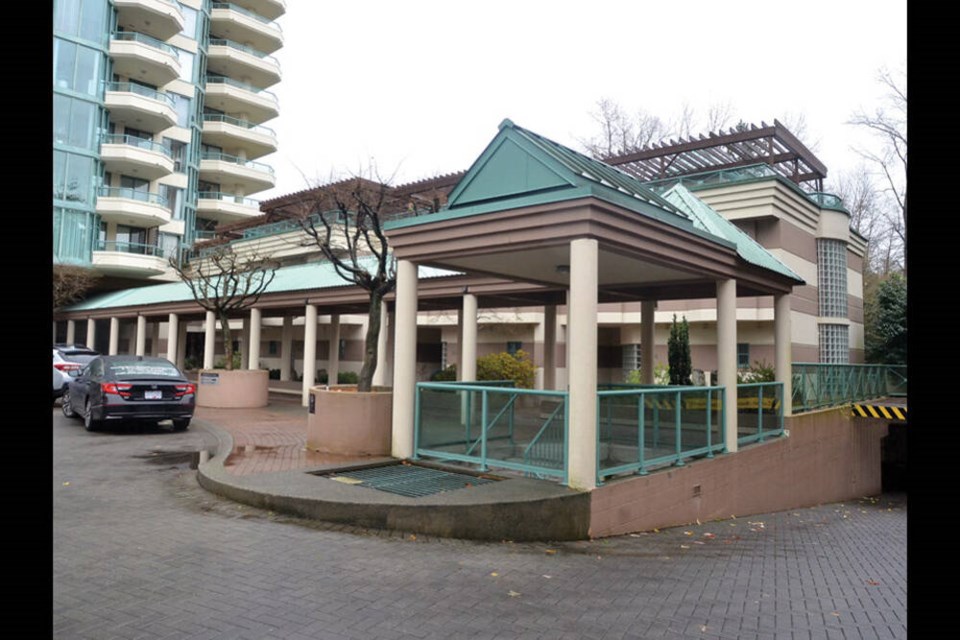Two West Vancouver condo owners have been ordered to repair the structural damage they did to their townhouse complex while carrying out unpermitted renovation work.
In March 2020, the strata council for the West Royal Towers approved Philip and Raven Garrow’s request for an alteration permit for their ground-level townhouse, according to a ruling released by the Civil Resolution Tribunal last week. But, the following month, the strata revoked their permit and alerted the District of West Vancouver after they learned that contractors had been coring holes into the concrete floor, which was expressly forbidden by the agreement.
“The structure of concrete floors is post-tensioned and any damage to the cables embedded in the concrete floors could cause catastrophic damages to the structural integrity of the building,” the agreement stated.
An inspection by an engineer hired by the strata confirmed two of the post-tension cables had been damaged and one had been severed completely by the coring, the ruling states.
The District of West Vancouver also put a stop work order on the job site.
The Garrows took their strata to Civil Resolution Tribunal, attempting to have the strata’s stop work order cancelled and seeking $180,000 in damages for negligence and breaching the alteration agreement.
The Garrows admitted that their work included coring holes into the slab, which resulted in the post-tension cables being cut, the ruling states, but they argued that the plans approved by the strata indicated the holes would be required to move plumbing fixtures.
Tribunal vice-chair Kate Campbell rejected the Garrows’ claims, finding that the terms of the agreement supersede anything that may have been in the architectural drawings.
“I find the strata was justified in stopping the work, because coring holes in the floor was specifically prohibited in the alteration agreement,” she wrote, adding later, “I also note that the Garrows initialled each page of the agreement, and cannot argue they were reasonably unaware of all its terms.”
The strata filed a counterclaim, seeking an order forcing the Garrows to repair the structural cables and halt any other work until that is done. The Garrows argued they shouldn’t be required to do the work, given the opinion of their engineer that “the slab can support the design loading without any of the three damaged cables.”
Campbell disagreed, favouring the evidence of the strata’s engineer, who pointed out that if future work resulted in similar damage elsewhere in the complex, it could create more urgent safety concerns.
“It would be unreasonable to conclude that the Garrows are entitled to leave the cables they damaged unrepaired, when that could lead to future problems,” she wrote. “Given that structural cables were quickly and easily damaged by the Garrows’ renovations, it would be unreasonable to conclude that future damage by others is unlikely.”
The alteration agreement signed by the Garrows specifically puts the liability on them for the repairs, Campbell noted, giving them 120 days to provide a report from an engineer confirming that the repairs have been completed.
The tribunal did, however, reject the strata’s request for an order requiring the Garrows to pay punitive damages.
Campbell noted in the ruling that the strata estimates the repair costs will be about $250,000, although the exact cost wasn’t known.
The Garrows have a separate legal dispute with the district seeking the removal of the municipal stop work order on the site. It remains before the B.C. Supreme Court.
It is not the only run-in the developers have had with West Vancouver. In 2017, the district filed a petition in B.C. Supreme Court seeking an order to demolish a 20th Street home they alleged the Garrows had built almost entirely without permits. The building had numerous structural, electrical and plumbing deficiencies, the district submitted in court affidavits. Before the case could be heard in court, one of the Garrows’ lenders foreclosed on the property and sold it to a new owner who demolished the house in October 2022.



